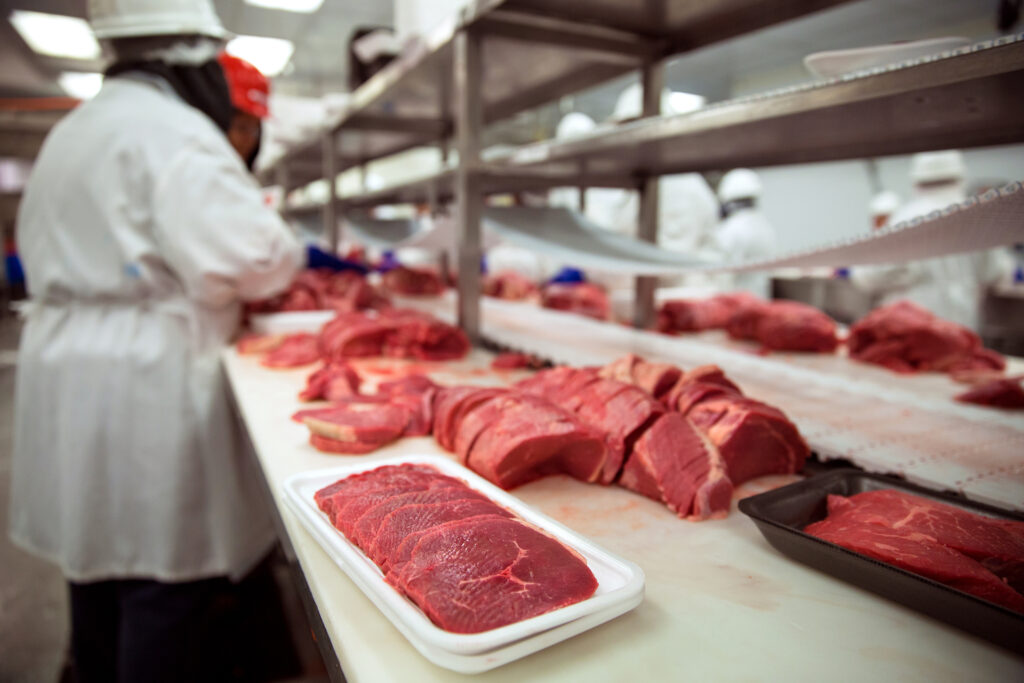Day-release prisoners “not the best solution” for labour shortages, BMPA warns
26th August 2021
Recent proposals to plug the industry’s workforce gap with prisoners and ex-offenders, should not be seen as a “quick fix”, the British Meat Processors Association (BMPA) has said.
Nick Allen, CEO of the BMPA, is calling for a temporary relaxation of the post-Brexit immigration rules to help tackle the chronic labour shortages in the meat industry.
In the longer term, re-training and re-skilling of British workers is needed to encourage uptake of jobs in food production and other industries.
The comments come after meat industry leaders met with the government to discuss how businesses could work with prisons to address the large number of vacancies.
With much of the food industry facing a recruitment crisis, the Association of Independent Meat Suppliers (AIMS) said several of its members are now speaking with the New Futures Network, part of HM Prisons & Probation Service, about opportunities within their businesses – mainly for prison leavers.
Could day-release prisoners offer a solution?
AIMS said a few of its members already have offenders on Release on Temporary License (ROTL) who are working for them, and report they are “well behaved, hard-working, and willing to learn”. In some cases they wish to continue working in the food processing industry after their release.
ROTL allows prisoners to be released temporarily into the community for specific purposes such as to engage in employment, to maintain family ties or to receive medical treatment.
At least three leading food manufacturers are already linked up with prisons to train offenders for post-release positions, AIMS added, and many prisons already teach offenders food safety. AIMS has suggested prisons look at some of the other free training available, such as the FSA’s Allergen training and Vacuum Packing training in order that offenders can leave prisons ‘job ready’.
AIMS believes the prison service’s existing Clink Kitchens Scheme, which has plans to expand, could go some of the way to helping ease the labour shortage in both the hospitality and food manufacturing sectors.
Schemes need “careful management and input”
The BMPA acknowledged that the industry has a long history of working with ex-offenders and, over the years, some of its members have offered great opportunities in their local communities to those coming out of the prison system.
However, Nick Allen stressed that these schemes require careful management and considered input from businesses, which can be a challenge.
“Participation in these schemes is to be encouraged but they should not be regarded as a quick fix for the current labour problem,” he said. “They can’t simply be treated as a source of casual or seasonal workers.
“Our members are very aware that these schemes require considered input from both the businesses and the local authorities involved to make sure they provide the kind of support needed to integrate these new workers into companies. Hygiene, health and safety considerations are an added layer of consideration for food producers.”
Even programmes for those who have already left prison, such as those run by organisations supported by The Prince’s Trust, require “careful management”.
Mr Allen added: “But the Release On Temporary License (ROTL) scheme adds an extra level of complexity. It requires more organisation and supervision which meat companies that are already short of staff find hard to resource, particularly given the additional Covid challenges.”
He concluded: “We fully support members’ efforts to help people in their local communities to re-enter the workforce, the problem they are facing right now can only be addressed properly in the short term by temporarily relaxing our post-Brexit immigration rules. This would alleviate the labour shortage now while the country embarks on the longer-term re-training and re-skilling of British workers to take up jobs in food production and other industries.”
Commenting on the proposals, British Veterinary Association president James Russell was supportive of new ways to address labour shortages, but stressed the importance of animal welfare, food safety and public health.
“Throughout the food chain we are seeing enormous workforce shortages exacerbated by Brexit and the pandemic. It’s useful to consider innovative ways to boost the workforce as long as food safety, public health, and animal health and welfare remain at the heart of food supply.
“The role of vets within abattoirs to ensure safety and welfare is paramount and we remain particularly concerned about veterinary shortages in this critical area.”

